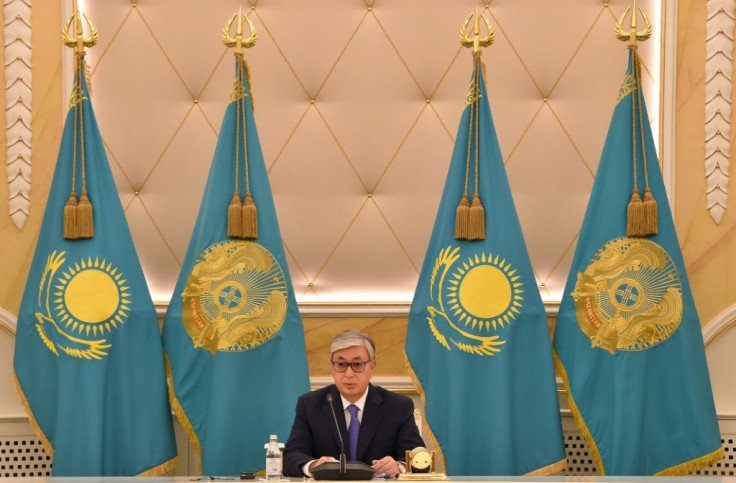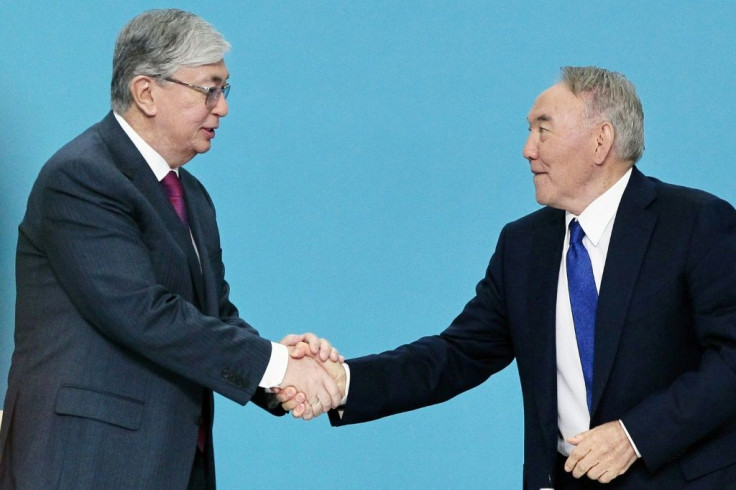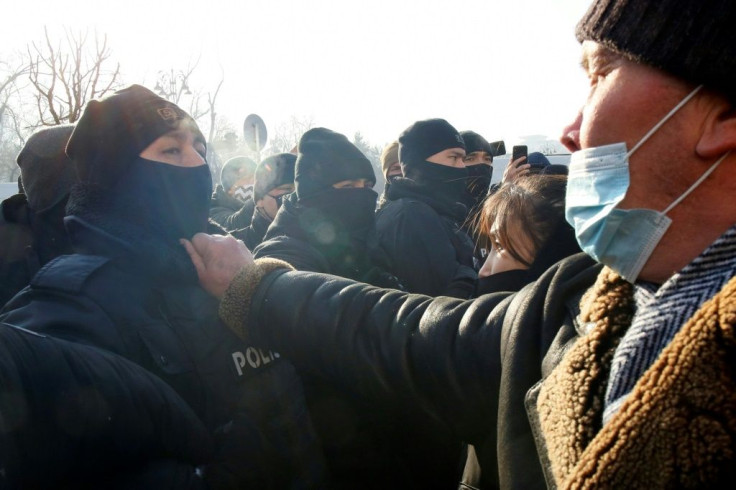Ruling Party Dominates Opposition-free Vote In Kazakhstan
Kazakhstan's ruling party swept to victory in an opposition-free parliamentary election Sunday, cementing the Central Asian country's authoritarian trajectory despite promises of reform.
An exit poll by government-sanctioned pollster Public Opinion gave the Nur Otan party nearly 72 percent of the ballot and showed two other pro-government parties crossing the seven percent vote threshold.
But exit polls are tightly controlled in Kazakhstan, an ex-Soviet country that has never held an election deemed free or fair by Western vote monitors.
President Kassym-Jomart Tokayev, 67, has pledged gradual political reforms since being eased into his post by former leader Nursultan Nazarbayev, who called time on nearly three decades as head of state in early 2019.
But 80-year-old Nazarbayev retains powerful positions, including the chairmanship of the Nur Otan party that controls the lower house and boasts 800,000 members among a population of 19 million.

Dozens of anti-government activists were reportedly detained despite Tokayev pledging that police would treat protesters "within the framework of the law" after he cast his vote in the capital Nur-Sultan on Sunday.
Riot police surrounded two groups of several dozen protesters in tight circles for several hours in frosty conditions in the largest city Almaty, an AFP journalist at the scene reported.
"Many of us have had to go to the toilet here, on the street," claimed Zhanbolat Mamay, a prominent activist, speaking from inside one of the cordons.
"Dozens of our members were arrested today."
The situation in Nur-Sultan, which was renamed in Nazarbayev's honour when he stepped down, was calm and polling stations saw long queues throughout the day.

One 50-year-old man named Nurzhan told AFP that many Kazakhs "have stopped believing in progress".
"But I still hope (things) can be better," he said, explaining his decision to head to the polls.
Turnout, which critics say is routinely inflated by authorities, reached 63.1 percent after polls closed.

One candidate featured on the ballot was Nazarbayev's eldest daughter, 57-year-old Dariga Nazarbayeva, who was representing Nur Otan.
Her return to politics comes just eight months after Tokayev fired her as senate speaker -- a role second in line to the presidency.
Her dismissal, which was not explained, triggered speculation about a power struggle.
But the new president regularly lavishes praise on his mentor's achievements and has pledged to continue his strategic course.
The two men appeared together at a Nur Otan party congress in November.
The World Bank has estimated Kazakhstan's economy shrank 2.5 percent in 2020 as it grappled with the effects of the coronavirus pandemic -- a first year-on-year recession in two decades.
But suffocating authoritarianism has left few outlets to voice dissatisfaction with the status quo.
One self-styled opposition group, the National Social Democratic Party, boycotted the vote in protest, having missed out on the legislature every time after competing in the last three parliamentary votes.
France-based fugitive banker and long-time regime nemesis Mukhtar Ablyazov last year called on his supporters to vote for the pro-government Ak Zhol party to undermine Nur Otan's dominance.
In an apparent response, Ak Zhol closed its books to new members.
Late last month two opposition activists in the northeastern town of Semey were fined around $100 each for distributing photocopies of Ak Zhol's leaflets.
The court said they had done so "without (Ak Zhol's) stated permission", according to verdicts seen by AFP -- one of several instances of authorities cracking down on campaigning.
The United States embassy said last month it was "alarmed" by new restrictions targeting local independent observers, who documented widespread ballot stuffing during presidential elections in 2019.
© Copyright AFP 2024. All rights reserved.







